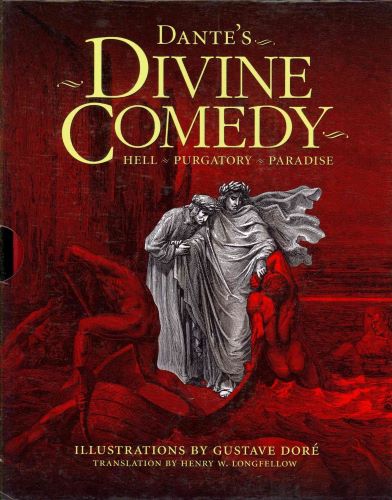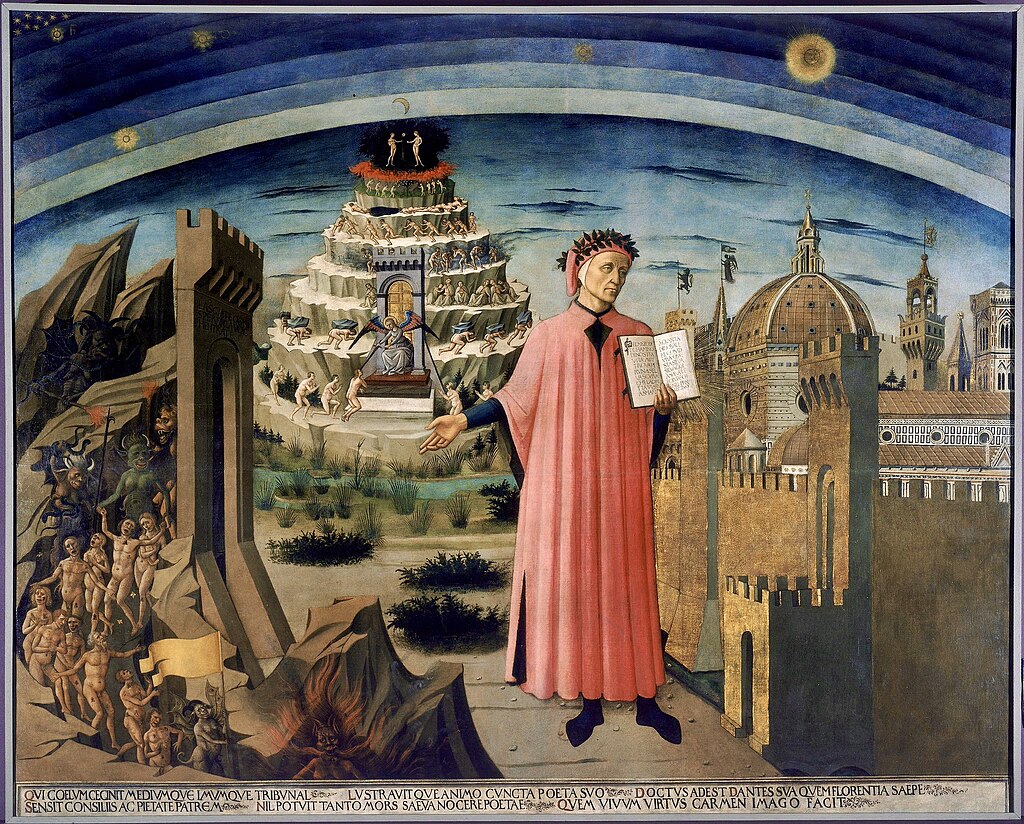
Dante Alighieri, the renowned Italian poet of the 14th century, left an indelible mark on literature and philosophy with his magnum opus, the Divine Comedy
SHOUKAT LOHAR
Dante Alighieri, the renowned Italian poet of the 14th century, left an indelible mark on literature and philosophy with his magnum opus, the Divine Comedy (La Divina Commedia). Comprising three parts—Inferno, Purgatorio, and Paradiso—this epic poem has not only captivated readers for centuries but has also profoundly influenced art, culture, and even religious thought. In this article, we explore the impact and implications of Dante’s Divine Comedy, shedding light on its enduring significance.
Literary Masterpiece
Dante’s Divine Comedy is widely regarded as one of the greatest literary works in history. It showcases his unparalleled poetic skill, innovative use of vernacular Italian, and vivid imagery. The poem narrates Dante’s journey through Hell (Inferno), Purgatory (Purgatorio), and Heaven (Paradiso), guided by the spirit of the Roman poet Virgil and later by Beatrice, his idealized love. Dante’s intricate descriptions, allegorical characters, and evocative language make the Divine Comedy a timeless masterpiece of world literature.
Spiritual and Philosophical Implications

The Divine Comedy delves into profound spiritual and philosophical themes. It explores the nature of sin, human suffering, redemption, and the ultimate quest for salvation. Dante’s vivid depiction of Hell serves as a moral and social commentary, exposing the consequences of human vices. Purgatory, on the other hand, represents the transformative power of repentance and self-reflection. Finally, Heaven portrays the blissful union with God and the eternal reward.
Influence on Art and Culture
Dante’s Divine Comedy has had a significant impact on various artistic and cultural spheres. It inspired countless visual artists, including Sandro Botticelli, William Blake, and Salvador Dalí, who created illustrations and paintings based on its vivid imagery. Moreover, the Divine Comedy has influenced numerous literary works, such as John Milton’s Paradise Lost and T.S. Eliot’s The Waste Land, showcasing its enduring legacy in the realm of poetry and literature.
Linguistic and Literary Legacy
Dante’s use of the Italian vernacular, known as Tuscan or Florentine, significantly contributed to the development of the Italian language. His decision to write in the language of the people rather than Latin helped elevate Italian to a literary language, paving the way for future writers. Furthermore, his innovative terza rima verse form, consisting of interlocking three-line stanzas, became a model for subsequent poets and remains a hallmark of Italian poetry.
Influence on Religious Thought
The Divine Comedy had a profound impact on religious thought and theology. It shaped the perception of the afterlife, sin, and divine justice in Christian tradition. Dante’s imaginative portrayal of Heaven, Hell, and Purgatory, intertwined with theological concepts, influenced subsequent religious thinkers and provided a framework for contemplating spiritual matters.
Conclusion
Dante’s Divine Comedy stands as a testament to the power of literature to transcend time and culture. Its profound impact on art, culture, and religious thought is a testament to its enduring significance. Through its intricate storytelling, spiritual exploration, and linguistic innovation, the Divine Comedy continues to captivate readers and inspire countless artists and thinkers. Dante’s legacy as a visionary poet and philosopher remains unmatched, securing his place among great writers of the world.
_________________
 Shoukat Lohar is Assistant professor in English at Mehran University of Engineering and Technology Jamshoro. He can be reached at Shoukat.ali@faculty.muet.edu.pk
Shoukat Lohar is Assistant professor in English at Mehran University of Engineering and Technology Jamshoro. He can be reached at Shoukat.ali@faculty.muet.edu.pk